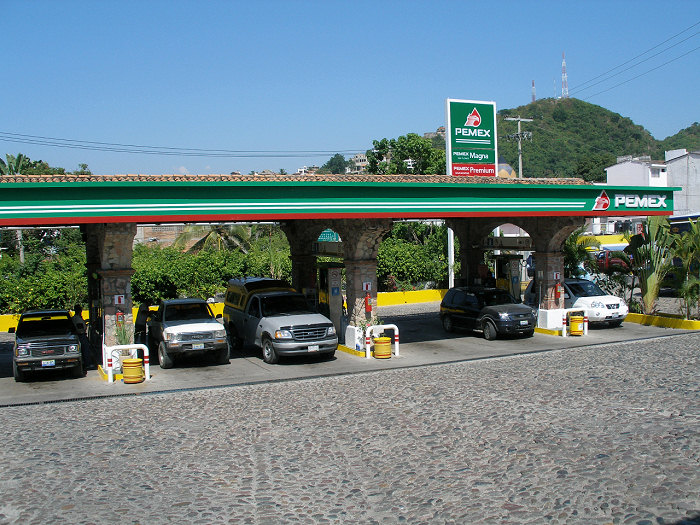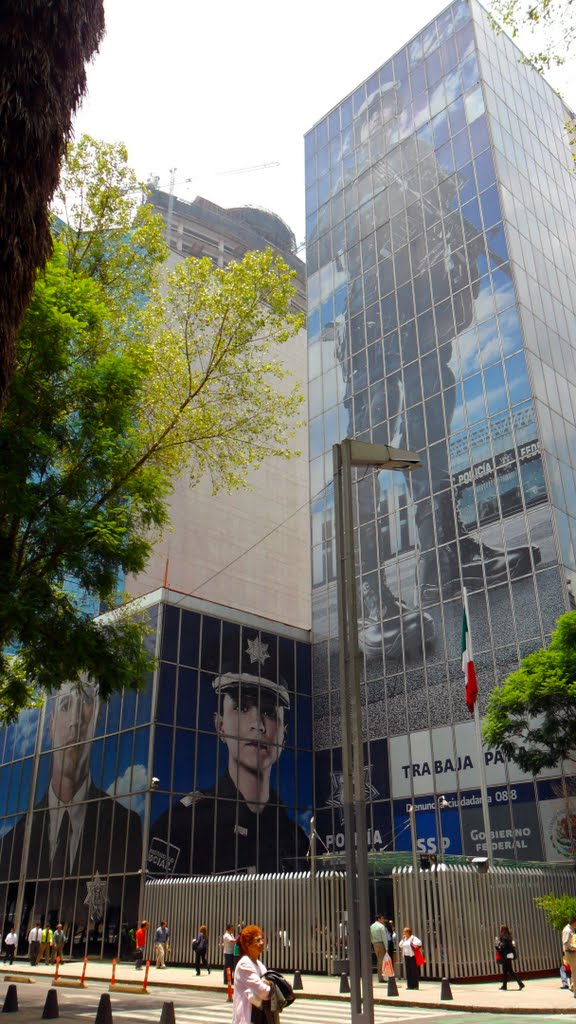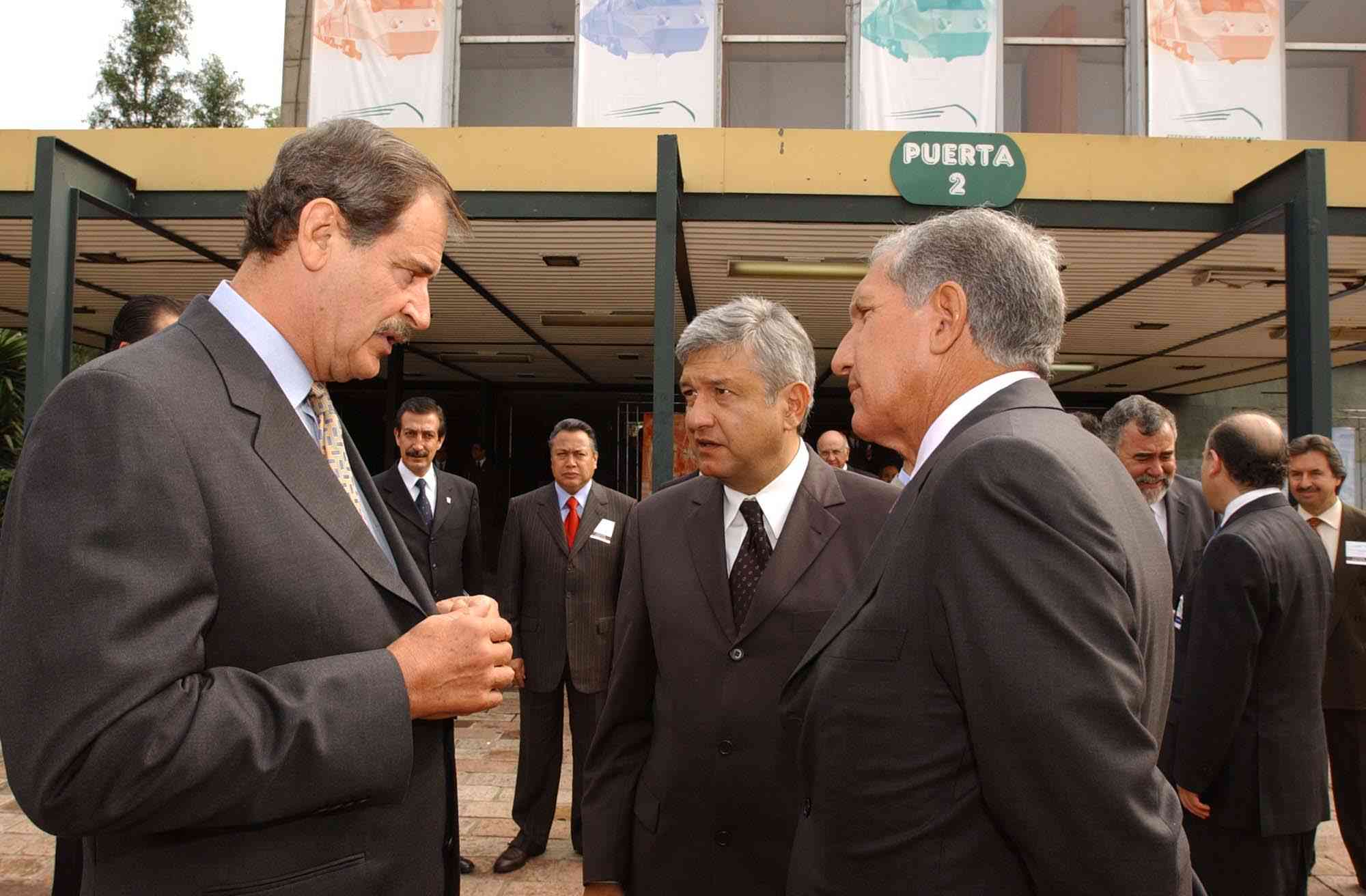|
Huachicoleros
In Mexico, a ''huachicolero'' or ''guachicolero'' is a person dedicated to the theft and illicit sale of motor fuel (primarily petrol and diesel) and adulterated alcoholic beverages. Fuel theft has been on the increase in the country in recent years. Etymology The word derives from ''huachicol'' – originally, according to the Mexican Academy of the Language, an alcoholic beverage adulterated with low-grade alcohol made from sugarcane – plus the suffix ''-ero'', indicating a profession, occupation or device. El Colegio de México's ' offers two definitions for ''huachicol'' or ''guachicol'': a tool comprising a pole with a basket on one end, used to pick fruit from trees, or the person who uses such a tool; and "a criminal who steals fuel by tapping the pipelines that carry it." According to the Academy's ''Diccionario de Mexicanismos'', the term also derives from the word ''guacho'', from the Mayan word ''waach'', which means "thief" in some parts of Mexico. Modern-day i ... [...More Info...] [...Related Items...] OR: [Wikipedia] [Google] [Baidu] |
Tlahuelilpan Pipeline Explosion
On 18 January 2019, a pipeline transporting gasoline exploded in the town of Tlahuelilpan, in the Mexican state of Hidalgo. The blast killed at least 137 people and injured dozens more. Mexican authorities blamed fuel thieves, who had illegally tapped the pipeline. The explosion was particularly deadly because large crowds of people had gathered at the scene to steal fuel. Security forces tried to persuade people to move away from the scene, but they were outnumbered and asked not to engage with civilians for fear of causing a violent confrontation. The leak was reported at 17:04 CST (11:04 UTC), and the explosion occurred two hours later at 19:10. It took about four hours for responders to extinguish the fire. Background Fuel theft from pipelines owned by Pemex, the state oil company, has been a long-term problem in Mexico. The problem worsened in the 2010s as organized crime groups in Mexico began including gasoline theft as part of their main streams of revenue ... [...More Info...] [...Related Items...] OR: [Wikipedia] [Google] [Baidu] |
Mexico
Mexico (Spanish: México), officially the United Mexican States, is a country in the southern portion of North America. It is bordered to the north by the United States; to the south and west by the Pacific Ocean; to the southeast by Guatemala, Belize, and the Caribbean Sea; and to the east by the Gulf of Mexico. Mexico covers ,Mexico ''''. . making it the world's 13th-largest country by are ... [...More Info...] [...Related Items...] OR: [Wikipedia] [Google] [Baidu] |
Veracruz
Veracruz (), formally Veracruz de Ignacio de la Llave (), officially the Free and Sovereign State of Veracruz de Ignacio de la Llave ( es, Estado Libre y Soberano de Veracruz de Ignacio de la Llave), is one of the 31 states which, along with Mexico City, comprise the 32 Federal Entities of Mexico. It is located in eastern Mexico and is bordered by seven states, which are Tamaulipas, San Luis Potosí, Hidalgo, Puebla, Oaxaca, Chiapas, and Tabasco. Veracruz is divided into 212 municipalities, and its capital city is Xalapa-Enríquez. Veracruz has a significant share of the coastline of the Gulf of Mexico on the east of the state. The state is noted for its mixed ethnic and indigenous populations. Its cuisine reflects the many cultural influences that have come through the state because of the importance of the port of Veracruz. In addition to the capital city, the state's largest cities include Veracruz, Coatzacoalcos, Córdoba, Minatitlán, Poza Rica, Boca Del Río and Or ... [...More Info...] [...Related Items...] OR: [Wikipedia] [Google] [Baidu] |
Petroleum Industry In Mexico
The petroleum industry in Mexico makes Mexico the eleventh largest producer of oil in the world and the thirteenth largest in terms of net exports. Mexico has the seventeenth largest oil reserves in the world, and it is the fourth largest oil producer in the Western Hemisphere behind the United States, Canada and Venezuela. Mexico is not a member of the OPEC (the Organization of Petroleum Exporting Countries) or any petroleum production related organizations, but since 1994 it is a member of the North American Free Trade Agreement. The petroleum sector is crucial to the Mexican economy; while its oil production has fallen in recent years, oil revenues still generate over 10% of Mexico's export earnings. High taxes on the revenues of Pemex provide about a third of all the tax revenues collected by the Mexican government. History Development of the oil industry in Mexico before 1938 Petroleum was known in Mexico before the arrival of the Spaniards and used by the natives f ... [...More Info...] [...Related Items...] OR: [Wikipedia] [Google] [Baidu] |
Federal Police (Mexico)
The Federal Police ( es, Policía Federal, PF), formerly known as the (Federal Preventive Police) and sometimes referred to in the U.S. as "Federales", was a Mexican national police force formed in 1999 and folded into the National Guard in 2019. It operated under the authority of the Department of Security and Civil Protection. The Federal Police was formed through the merger of four previously independent federal police agencies — the Federal Highway Police, the Fiscal Police, the Investigation and National Security Center, and the Mexican Army's 3rd Military Police Brigade — and was initially referred to as the Federal Preventive Police. Throughout its 20 year existence, the Federal Police was dogged by allegations of widespread corruption and abuse — allegations which President Andrés Manuel López Obrador said influenced his administration's decision to disband the force. Since its disbandment, two high-ranking commanders have been arrested for offences they committe ... [...More Info...] [...Related Items...] OR: [Wikipedia] [Google] [Baidu] |
Mexican Armed Forces
The Mexican Armed Forces ( es, Fuerzas Armadas de México) are the military forces of the United Mexican States. The Spanish crown established a standing military in colonial Mexico in the eighteenth century. After Mexican independence in 1821, the military played an important political role, with army generals serving as heads of state. Following the collapse of the Federal Army during the 1910-1920 Mexican Revolution, former revolutionary generals systematically downsized the size and power of the military. Currently the Mexican military forces are composed of two independent entities: the Mexican Army and the Mexican Navy. The Mexican Army includes the Mexican Air Force, while the Mexican Navy includes the Naval Infantry Force (Marine Corps) and the Naval Aviation (''FAN''). The Army and Navy are controlled by two separate government departments, the National Defense Secretariat and the Naval Secretariat, and maintain two independent chains of command, with no joint command e ... [...More Info...] [...Related Items...] OR: [Wikipedia] [Google] [Baidu] |
Andrés Manuel López Obrador
Andrés Manuel López Obrador (; born 13 November 1953), also known by his initials AMLO, is a Mexican politician who has been serving as the 65th president of Mexico since 1 December 2018. He previously served as Head of Government of Mexico City from 2000 to 2005. Born in Tepetitán, in the municipality of Macuspana, in the south-eastern state of Tabasco, López Obrador earned a degree in political science from the National Autonomous University of Mexico following a hiatus from his studies to participate in politics. He began his political career in 1976 as a member of the Institutional Revolutionary Party (PRI). His first public position was as director of the Indigenous Institute of Tabasco, where he promoted the addition of books in indigenous languages and the project of the Chontal ridge. In 1989, he joined the Party of the Democratic Revolution (PRD), becoming the party's 1994 candidate for Governor of Tabasco, and national leader between 1996 and 1999. In 2000, he ... [...More Info...] [...Related Items...] OR: [Wikipedia] [Google] [Baidu] |
Jens Erik Gould
Jens Erik Gould (born 1981) is an American journalist focusing on politics, business and energy. He has reported for media outlets including ''The New York Times'', National Public Radio, Bloomberg News, and TIME Magazine. He has also worked as a musician and video producer. Career Gould worked as a foreign correspondent in Venezuela from 2005 to 2008. During this time, he regularly contributed pieces on the Hugo Chavez administration to ''The New York Times'' Business Day, TIME Magazine, and National Public Radio, as well as pieces on the Venezuelan and global oil industry for Argus Media and Platts. From 2008 to 2011, Gould worked as a staff correspondent for Bloomberg News in Mexico City, covering Mexican politics, economy and the drug war. His work on Latin America has been cited in several Congressional Research Service reports for the US Congress. Gould moved to Los Angeles in 2011. He has covered California politics and entertainment news for TIME Magazine and time.com. ... [...More Info...] [...Related Items...] OR: [Wikipedia] [Google] [Baidu] |
2010 Puebla Oil Pipeline Explosion
The 2010 Puebla oil pipeline explosion was a large oil pipeline explosion that occurred at 5:50 am CST on December 19, 2010, in the city of San Martín Texmelucan de Labastida, Puebla, Mexico. The pipeline, running from Tabasco to Hidalgo, was owned by the Pemex petroleum company, and exploded after thieves from the Los Zetas drug cartel attempted to siphon off the oil. The gas explosion and resulting oil fire killed 29 people, including thirteen children, and injured 52. Some of the flames in the fire became ten metres high, and the smoke towered over the city. Firefighters eventually controlled the blaze, but electricity and water remained cut following the explosions, and the military was deployed to the site. Mexican President Felipe Calderón visited the explosion site on the day of the incident to offer condolences to the victims' families. The fire was one of the deadliest in Mexican history, largely destroying an area of five-kilometre radius, and some oil may have pollute ... [...More Info...] [...Related Items...] OR: [Wikipedia] [Google] [Baidu] |
Hidalgo (state)
Hidalgo (), officially the Free and Sovereign State of Hidalgo ( es, Estado Libre y Soberano de Hidalgo) is one of the 31 states which, along with Mexico City, constitute the 32 federal entities of Mexico. It is divided into 84 municipalities and its capital city is Pachuca de Soto. Located in the eastern part of the country, Hidalgo is bordered by San Luis Potosí and Veracruz on the north, Puebla on the east, Tlaxcala and State of Mexico on the south and Querétaro on the west. In 1869, Benito Juárez created the State of Hidalgo and made Pachuca its capital city; Juárez would add the name ''"de Soto"'' in recognition of Manuel Fernando Soto, who is considered the most important driving force in creating the state. The state was named after Miguel Hidalgo y Costilla, the initiator of the Mexican War of Independence. The indigenous peoples of the state, such as the Otomi, retain much of their traditional culture. In addition to Mexicans of Spanish descent, there are also n ... [...More Info...] [...Related Items...] OR: [Wikipedia] [Google] [Baidu] |
Puebla
Puebla ( en, colony, settlement), officially Free and Sovereign State of Puebla ( es, Estado Libre y Soberano de Puebla), is one of the 32 states which comprise the Federal Entities of Mexico. It is divided into 217 municipalities and its capital is the city of Puebla. It is located in East-Central Mexico. It is bordered by the states of Veracruz to the north and east, Hidalgo, México, Tlaxcala and Morelos to the west, and Guerrero and Oaxaca to the south. The origins of the state lie in the city of Puebla, which was founded by the Spanish in this valley in 1531 to secure the trade route between Mexico City and the port of Veracruz. By the end of the 18th century, the area had become a colonial province with its own governor, which would become the State of Puebla, after the Mexican War of Independence in the early 19th century. Since that time the area, especially around the capital city, has continued to grow economically, mostly through industry, despite being the scene o ... [...More Info...] [...Related Items...] OR: [Wikipedia] [Google] [Baidu] |
Black Market
A black market, underground economy, or shadow economy is a clandestine market or series of transactions that has some aspect of illegality or is characterized by noncompliance with an institutional set of rules. If the rule defines the set of goods and services whose production and distribution is prohibited by law, non-compliance with the rule constitutes a black market trade since the transaction itself is illegal. Parties engaging in the production or distribution of prohibited goods and services are members of the . Examples include the illegal drug trade, prostitution (where prohibited), illegal currency transactions, and human trafficking. Violations of the tax code involving income tax evasion in the . Because tax evasion or participation in a black market activity is illegal, participants attempt to hide their behavior from the government or regulatory authority. Cash is the preferred medium of exchange in illegal transactions since cash transactions are less-easi ... [...More Info...] [...Related Items...] OR: [Wikipedia] [Google] [Baidu] |


